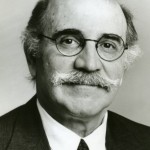Otis Redding’s “(Sittin’ On) The Dock of the Bay”
 Otis Redding had never seen anything so peaceful.
Otis Redding had never seen anything so peaceful.
The California sunlight sprinkling diamonds on the calm water of the bay, the seagulls circling overhead in an azure sky, the old fishermen hauling in their nets near the docks.
While on the West Coast for an engagement at the Fillmore in June 1967, Redding and his road manager “Speedo” Sims escaped for a few days of R&R on a rented houseboat near Sausalito.
In that idyllic setting, Redding relaxed, gently strumming his acoustic guitar and singing two lines over and over:
Sittin’ in the morning sun
I’ll be sittin’ when the evening comes
Sims recalled, “We must have been out there three or four days before I could get any concept as to where he was going with the song. I just didn’t understand it. And lyrically, it sounded weird. He was changing with the times. And I was looking at the times change.”
For Redding, those changing times meant that he’d begun listening to Bob Dylan and the Beatles, smoking pot and thinking about new horizons beyond his career as an R&B barn-burner. On a deeper level, it meant personal and professional change. He’d outgrown his marriage and fallen in love with singer Carla Thomas. He was also feeling constrained by Stax Records, who wanted to keep him on the road. But Redding had ambitions to start his own label and become a producer.
As he toured Europe that summer, Redding kept tinkering with his Sausalito tune. Five months after he started it, he brought the song-in-progress into Stax studios. On Dec. 7, he and guitarist Steve Cropper finished it in half an hour, fleshing out the story and adding a bridge.
“When I wrote with Otis, I always tried to make the lyric about him and his life,” Cropper said. “Songs like ‘Mr. Pitiful,’ ‘Sad Song’—those are all about him. ‘Dock of the Bay’ was, too. Otis trusted me. I always seemed to do the things he liked.”
To capture their creation in the heat of the moment, they gathered the MG’s and the Mar-Keys for a late-night session.
Redding was excited, conducting Booker T on piano and Al Jackson on drums, while singing horn parts to the Mar-Keys.
“With Otis, it was all about feeling and expression,” Cropper said. “Most of his songs had just two or three chord changes, so there wasn’t a lot of music there. The dynamics, the energy, the way we attacked it—that’s hard to teach.”
It was clear to everyone present that “Dock of the Bay” was unlike anything he’d ever recorded. There were no soul shouts or grunts. No uses of “Got-ta!” or “C’mon baby.” Just Redding “restin’ his bones” in the most exquisitely soulful and laid-back way.
“I knew this was it,” Cropper recalled of the playback. “It was just a great song. We knew we finally had the song that would cross him over to the pop market.”
Not everyone agreed.
“It was too far over the border for Jim [Stewart, Stax president],” bassist Duck Dunn said. “It had no R&B whatsoever. I agreed with Jim. It didn’t impress me. I thought it was out of context. Otis was soulful, and for him to change over and go that way, it wasn’t as soulful as the Otis I knew. I thought it might even be detrimental.”
But Redding wouldn’t budge. “This is my first No. 1 record,” he said. “It’s the biggest song I ever had.”
Two days after the recording session at Stax, Redding was back out on the road, in the Midwest. On Dec. 10, he and five bandmates boarded his private plane, a twin-engine Beechcraft, bound for Nashville. Four miles into the flight, the engine failed and the plane crashed into the icy waters of Lake Monoma, near Madison, Wis. One passenger, Ben Cauley, managed to unbuckle his seat belt and survived. The other five, including Redding, drowned.
The cause of the crash was never determined. Redding’s body was recovered the next day when the lake was dragged. He was 26.
As Redding predicted, “Dock” went to the top of the charts (it was the first-ever posthumous No. 1 by an artist in the U.S.), and became a million-seller. It won Grammy Awards for Best R&B Performance and Best R&B Song. In the years since, it has become a standard, covered by artists ranging from Peggy Lee to Pearl Jam. The most affecting cover, which reached No. 55 in 1982, was by the Reddings—Otis’ sons, Dexter and Otis III. In 1999, BMI named it the sixth most performed song of the 20th century, with over 6 million radio performances.
For Cropper, the song’s towering success has been bittersweet. “I miss Otis,” he said in 2004. “I miss him as much now as I did after we lost him. I’ve been to the lake in Madison where they have the plaque. That was Dec. 10, 1967. It’s been difficult for me to listen to Otis since then. It brings back too many memories, all great except for the end.”
—By Bill DeMain
From Performing Songwriter Issue 104
Category: Behind The Song







 Creative Workshops fill up quickly! Sign up here to receive first notice and announcements.
Creative Workshops fill up quickly! Sign up here to receive first notice and announcements. 





There have been great and lasting songs over the decades recorded… nothing that stops me dead in my tracks wherever I am like a song of Otis Redding’s. He’ll live forevermore.
Well actually my aunt wrote this song. My grandmother sent this song in after her daughter wrote it to the radio station, and they stole it from her. She couldn’t read, so she didn’t understand what she was reading. This song is our family history.
Came in from Reddit. Appreciate the story – can’t believe he was only 26. What an old soul.
My dad was in Madison that day, and coincidentally, I live in Madison now. The lake’s name is “Monona”, not “Monoma”, and it’s not “near” Madison, it’s very much “in” Madison, a block away from the state capitol downtown.
Otis; up there with the greats there was a lot more to come from this man who knew how to resonate with our souls and make us feel alive such a shame he left us so soon God obviously needed him more. lots of love Otis hopefully we will meet again in heaven.
I was in Madison that day and night when the plane went down, and I was already a big fan of Otis. It is haunting, the song,and that evening after the crash as we viewed the sky looking for planes. a Beautiful man was Otis Redding.
I love this song. It touches my soul and heart. Each time i hear it i am made sad to think that mr redding passes at 26years old. Thank u otis for the time you were here.
Through the last two years I have suffered and still suffer on the thoughts of death and in a small way how much I dislike life. I hear those words and for a few seconds, I relate to those that are in my head. “got nothing to live for. Ain’t nothing gonna come my way”. And with what I got goin on, it feels like I am “just wasting time”. Otis was sitting on the dock, I am sitting here in my room as I am just waiting for time to go by. I was in a bar one night and a lady asked me to dance, and I told her “not to this song”. Otis Redding, you’ve played a big part in my life and your memory will be tattooed on the back of my mind and you will be one of the many people I will remember before I die! TY
So sad a story, decades later still a great song. He was a great singer. Great music is timeless….
I have to say this song is my favorite all time.
It is such a shame to loss this man at such an early time in his career.
The world lost a beautiful singer song writer the day we lost OTIS.
What a tragedy.
This man would have been one of the wonder’s of the world had he not passed at such an early age.
OTIS had real talent as everyone can see by this beautiful song.
Wayne Jackson of the famed,”Memphis Horns” told me the producer asked him and Andrew Love to stay in Memphis and finish the horn parts of the song instead of going out on that weekend tour. They finished the song in the studio.
I have heard “the Lake Effect” of ice on the wings of the plane was a cause of the crash.
I met Ben Cauley at the Stax Reunion – such a nice man as we’d parked next to each other across the street from the Morphiam, Theater in about 2003 – it was a TV taping for PBS.
Thanks for the article – it is always a great thing when Steve Cropper plays the song around Nashville at an event – usually some charity event that he donates his time to giving back in our great community.
Great stuff! Thanks for sharing Lydia – I’d never read Bill’s account of Otis.
v/r, duna